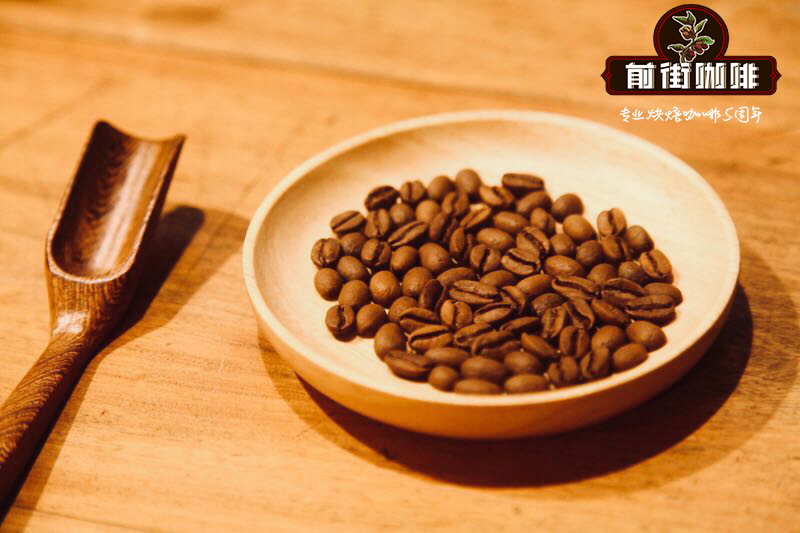The natural environment of the Neri Nyeri producing area of AA in Kenya creates high-quality coffee.
The natural environment of the Neri Nyeri producing area of AA in Kenya creates high-quality coffee.

Country: Kenya (Kenya)
Producing area: Nyeri
Producer: small farmers near the treatment plant
Processing plant: home Tuani processing plant
Treatment: Kenyan washing treatment
Varieties: SL28, SL34, Ruiru 11
Altitude: 1400-1800 m
Soil: volcanic soil
Annual rainfall: 1400-1800 mm
Flavor essay: floral aroma, citrus, honey, grapefruit and cranberry acid, Valentine fruit, litchi taste, bright acidity, clear lines.
Kenya is the star producer of coffee in Africa. Although it is geographically close to Ethiopia, the coffee industry started relatively late. With the vigorous development of the boutique coffee industry in the past decade, Kenya has become an important producer of international coffee gluttons scrambling to buy it. Although the overall coffee output accounts for less than 5% of the world's coffee production, the characteristics of the local soil rich in phosphoric acid, SL varieties, and local unique Kenyan washing are all the reasons why Kenyan coffee has become famous in the world today.
In 1930, in order to improve the coffee industry, the local Scott Laboratory (Scott laboratories) in Kenya decided to start with local varieties in Kenya, hoping to cultivate varieties with high yield, resistance to diseases and insect pests, greater adaptability to climate change, and adaptability to local soil characteristics. The researchers matched the traditional native bourbon, mocha, Tibica and so on. Cultivate a new SL28, SL34 these two future stars, the flavor has beyond the traditional bourbon fruit acid, citrus, black plum and other strong fruit flavor.
Kenyan coffee is generally divided into two sources of production, the first is a very small number of large private estates, and the second is small farmers scattered in the mountains. After harvesting, post-processing and other processes, the Kenyan Coffee Bureau will hold an auction (NCE auction) in Nairobi, the capital, every Tuesday, when buyers and exporters from all countries are snapping up their favorite batches of coffee.
Jia Tuani currently has about 1100 members, including more than 300 women, and belongs to Kenya's largest Othaya cooperative, which has as many as 19 processing plants, such as Gatugi, Kamoini, Ichamama and other processing plants. The Osaya Cooperative, located in the small town of Osaya in Nyeri, was founded in 1956 and now has about 14000 members, of whom 75% are men. They also have their own nursery gardens and laboratories, constantly developing new coffee varieties for planting experiments. Cooperatives also have their own planting techniques and marketing licenses, and are able to trade with the international market on their own. In addition, they are also members of the Kenyan Coffee Cooperative Export Organization (Kenya Cooperative Coffee Exporters, referred to as KCCE), so they can export coffee directly under the name of KCCE without having to go through the NCE bidding association. International grapevine pointed out that at present, cooperatives are facing the challenge of restructuring and processing plant independence, except that the bureaucratic system of Kenya Cafe has reduced the income of farmers, unable to repay loans from banks and cooperatives on time, resulting in more and more small processing plants demanding independent independence. It is believed that in the next few years, we can see a figure of Tuyani in the international community.
Important Notice :
前街咖啡 FrontStreet Coffee has moved to new addredd:
FrontStreet Coffee Address: 315,Donghua East Road,GuangZhou
Tel:020 38364473
- Prev

Planting Environment and Flavor characteristics of Black Honey in Shumawa Manor, Costa Rica
Black Honey planting Environment and Flavor characteristics of Schumawa Manor in Costa Rica Sumava de Lourdes is located in Naranjo, Orange County, West Valley, in the western valley of Costa Rica. There are two farms in the estate: Monte Llano Bonito and Monte Lourdes, of which Monte Llano Bonito won the 13th place in the 2015 Excellence Cup CoE competition. Shuma
- Next

Yemeni mocha coffee history, culture, characteristics, industry development
Yemeni coffee, a well-known coffee named after a port in Yemen. The most familiar mocha coffee. When the word appears on the recipes of bags and cafes, the meaning is different. The former refers to the port where coffee beans are exported, while the latter refers to a kind of coffee. Strictly speaking, coffee beans exported from the port of Mocha in Yemen can be called mocha coffee. Later, the port
Related
- Detailed explanation of Jadeite planting Land in Panamanian Jadeite Manor introduction to the grading system of Jadeite competitive bidding, Red bid, Green bid and Rose Summer
- Story of Coffee planting in Brenka region of Costa Rica Stonehenge Manor anaerobic heavy honey treatment of flavor mouth
- What's on the barrel of Blue Mountain Coffee beans?
- Can American coffee also pull flowers? How to use hot American style to pull out a good-looking pattern?
- Can you make a cold extract with coffee beans? What is the right proportion for cold-extracted coffee formula?
- Indonesian PWN Gold Mandrine Coffee Origin Features Flavor How to Chong? Mandolin coffee is American.
- A brief introduction to the flavor characteristics of Brazilian yellow bourbon coffee beans
- What is the effect of different water quality on the flavor of cold-extracted coffee? What kind of water is best for brewing coffee?
- Why do you think of Rose Summer whenever you mention Panamanian coffee?
- Introduction to the characteristics of authentic blue mountain coffee bean producing areas? What is the CIB Coffee Authority in Jamaica?

